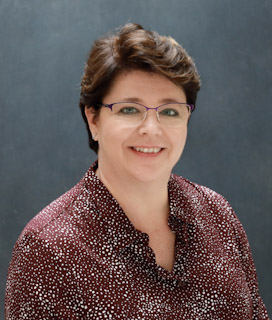Mandy Williams is a counsellor in EN6 and online
What attracted you to become a therapist?
I am an empathic person by nature, and try to put myself in another person's shoes, to truly understand where they are coming from and how they are feeling. Being a counsellor enables me to do that.
My aim is for my clients to feel valued, respected and heard, and for them to gain courage for the world they are facing.
Where did you train?
I have a Bachelor's degree with Psychology and Education as majors. I have trained with the Institute for Counselling and Chrysalis Counselling.
Much of my training, however, has been through work experience gained by supporting families, and children and young people in educational and clinical settings with varying conditions and diseases. I have have been a teacher and tutor for children in mainstream and SEND settings and this has given me a unique view of the stresses and anxieties parents and children face in these instances.
I also have palliative care experience working with both adults and children with life limiting and life-threatening diseases.
Can you tell us about the type of therapy you practise?
I am a pluralistic counsellor but focus on a person-centred as a starting point. For clients wanting a more goal orientated therapy, elements of CBT are included too.
My therapy is aimed at meeting each person's unique needs, their goals and reasons for coming to counselling. To be able to support clients to gain insight into their situation and come to terms with their normal whilst moving forward is a privilege.
I use person-centred therapy because the focus is on what a client brings, what they are uniquely feeling and experiencing, and the client can control the direction we go with our sessions.
What are your areas of expertise?
Bereavement and loss are areas I have expertise in, as well as SEND education, having experience of working in both children's and adults palliative care and educational settings.
I find working from a person-centred approach to be helpful. Supporting clients through grief and loss, which essentially can mean any type of loss e.g. pet loss, loss of a job, dreams or expectations, relationships or health is a privilege for me.
Having SEND experience enables me to understand a degree of what parents of children with SEND go through and how stressful being the carer of a child or young person with special needs can be. A person-centred approach supports parents to coming to terms with specific diagnoses relating to their child. Being able to talk this through with someone removed from their particular situation is often very helpful.
What sort of people do you usually see?
My clients range in age from children and young people experiencing grief, loss or educational difficulties such as ADHD and autism, to adults going through bereavement, loss, anxiety, confusion, depression and sadness.
Have you noticed any recent mental health trends or wider changes in attitude?
Mental health for children and young people has become a huge concern and is influencing our children's lives more and more. Children and young adults are having to deal with challenges they are not equipped to cope with and many are struggling with low mood and anxiety which then reflects in their behaviour and schooling which has long-term effects.
To be able to support young adults and children sooner and try to mitigate long-term effects is what I hope to do.
What do you like about being a therapist?
Offering acceptance, respect and a safe space for an adult or child who needs to unburden is what makes this job a calling. Supporting people through life changes and moving towards a place of growth where they can see a hope and a future is so rewarding.
What is less pleasant?
The less pleasant part of being a counsellor is hearing the traumas and tragedies clients experience, especially children and young people, and knowing there is no more I can do other than listen, be supportive and encouraging.
How long have you been with Welldoing and what you think of us?
I have only been with Welldoing a few months but am very impressed with their level of organisation, structure, and support for both clients and therapists.
What you do for your own mental health?
I love spending time outdoors and for me there is nothing better than a breath of fresh air. I enjoy gardening and going for drives to see the countryside and having a coffee at a cozy coffee shop or pub.
You are a therapist in Potters Bar, North London and online. What can you share with us about seeing clients in this area?
Since I am able to see clients online and in person, I feel that I am well placed to meet a client's needs wherever they are located.
What's your consultation room like?
I have an outdoor office which is calm and quiet. It is light, airy and air conditioned when warm, and cosy, heated and comfortable when chilly.
What do you wish people knew about therapy?
Therapy is often thought of as something scary and intimidating which only certain people need, but it can be a life-changing experience for anyone needing to be heard. Knowing you're being 100% listened to by someone not directly involved in your situation can bring about a sense of relief and freedom.
What did you learn about yourself in therapy?
The most important thing that I learnt from personal therapy self-empathy. As an empathic person, I was always concerned about others and never extended that empathy to myself.

